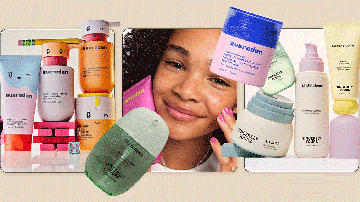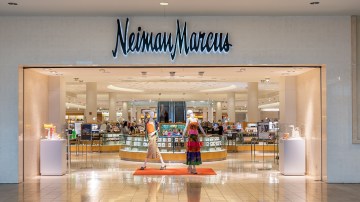After a decade of influencer marketing and algorithmic chasing, fashion’s next personalization experiment has arrived. A wave of AI-powered styling and shopping platforms promises faster, smarter and more individualized discovery. The question is whether shoppers actually want it.
There are multiple options to choose from. Alta, founded by technologist Jenny Wang and launched in June 2025, acts as an AI closet, planning outfits and recommending pieces based on what users already own. The platform has processed hundreds of thousands of wardrobe uploads and raised $11 million in seed funding to refine its styling algorithm, according to its founder.
Daydream, launched the same month by retail veteran Julie Bornstein, combines conversational search and visual discovery across 2 million products and 8,000 brands. It aims to make online shopping feel like chatting with a stylist. Bornstein, who previously built Stitch Fix’s digital strategy and founded AI shopping app The Yes, is betting that shoppers want guidance, not just listings.
There is also Phia, from founders Phoebe Gates and Sophia Kianni, launched in April 2025 as an AI shopping agent designed for total consumer personalization. It now scans over 300 million secondhand items, one of the largest databases globally, and operates through a mobile Safari and Chrome desktop browser extension. The platform has over 600,000 downloads and an 80% retention rate, and recently introduced beta sizing insights to help users reach purchase conviction faster.
And OneOff, co-founded by Emir Talu and Bobby Maylack, debuted in October 2025. A mix of ShopMy, Pinterest and Instagram, the app feeds off celebrity and creator looks and links to over 1 million products from luxury retailers.
DressX Agent, from co-founders Daria Shapovalova and Natalia Modenova, meanwhile, takes another approach. The app, launched in August 2025, lets users upload a selfie and basic details to generate an AI twin, try on outfits virtually and buy directly from partner brands.
“It makes shopping both easier and more creative,” Modenova said. DressX partners with retailers including Farfetch, Mytheresa, SSENSE, Italist, Diesel, Pinko, Antonioli, Roberto Cavalli and Off-White, providing virtual try-on and visualization technology across digital and physical channels. The platform now features over 4,800 brands and 1.2 million products, with users spending an average of three-and-a-half minutes per session and an order value around $302.
Each platform tackles a different friction point. For example, Alta targets daily utility, Daydream streamlines search, Phia optimizes price, and OneOff reimagines inspiration. But all aim to convert discovery into purchase.
“Fashion is the only consumer vertical that hasn’t been personalized yet,” said Talu. “For streaming, you have Netflix. For music, you have Spotify. For fashion, you still just go wherever the product is.”
Maylack added, “Everyone has been that person taking a screenshot and trying to find the product.”
OneOff curates creator-led looks, which are made shoppable through partners including Revolve, Net-a-Porter, Farfetch and Mytheresa. “People are a lot more style-driven rather than brand-driven,” Talu said. “Now, the styles dictate which brands are popular.”
Looks by celebrities including Emma Roberts, Kate Hudson, Emma Chamberlain, Quavo, Olivia Jade, Aryna Sabalenka, Suki Waterhouse and Winnie Harlow are also on the platform.
And retail partners are buying in. At Revolve, vp of performance marketing Ryan Pabelona described OneOff as part of the retailer’s plan to turn cultural influence into shoppable experiences that link inspiration and conversion. Revolve has also been testing AI through a “Build a Look” feature.
Where others simplify choice, DressX aims to close the confidence gap that drives returns, one of fashion’s biggest problems. According to the National Retail Federation, U.S. retailers saw nearly $890 billion in merchandise returned in 2024, or about 17% of annual sales. Apparel was among the most frequently returned products.
“There are people who have nothing to wear and people who don’t know what to wear,” Modenova said. “Then there are those who can’t visualize what something will look like on them. We just redress people [digitally] — it’s their actual face, in their real environment.”
DressX users spend an average of three-and-a-half minutes per session. The average order value through the app is $302. For Shapovalova, the next step is “deeper personalization.” “The retailer or the AI already knows your size and style preferences,” she said. “We want to build that memory into the system so you don’t have to start from scratch every time.”
Even as AI technology matures, striking a balance with a human element remains a challenge. “Most brands don’t yet know how to measure what’s happening [with AI shopping],” said Dave Anderson, vp of product marketing at Contentsquare. “They’re optimizing product data and visuals, but emotional connection still happens on the brand’s own site. The winners will be those who structure their data so AI can reason about fit, tone and style.”
Anderson added that most users still treat AI styling as an experiment. “The intent is high, but repeat engagement is still forming.”
The platforms are preparing for adoption to accelerate. DressX Agent now renders visuals in 10 seconds, down from 30 at launch, and plans to introduce video try-ons next year. OneOff is testing agentic checkout, where AI could eventually complete purchases on behalf of users. Alta continues refining its recommendation engine, while Daydream’s catalog expands weekly through brand integrations.
Major retailers are testing the waters, too. Walmart is piloting generative shopping assistants with OpenAI, Target is experimenting with conversational tools in its digital lab, and Amazon’s “Help Me Buy” feature now uses AI to suggest products by style, fit or occasion. Together, they signal that AI commerce is shifting from experiment to expectation.
Still, the heart of fashion remains emotional. “We don’t want to be an AI company in the fashion space,” said Maylack. “We want to be a fashion company leveraging the tools of today.”
If the next wave of AI agents can prove that they understand why people buy — not just what they click — personalization may finally start to feel human again.
| Platform | Launch Date | Core Feature | AI Role | Monetization | Notable Details |
|---|---|---|---|---|---|
| OneOff | October 2025 | Celebrity and creator style search | Matches celebrity looks to shoppable items | Affiliate commissions, brand partnerships | 1 million+ products; creators include Emma Chamberlain, Winnie Harlow, Brooks Nader, Kate Hudson and Quavo |
| Alta | June 2025 | Smart closet and outfit generation | Personalized styling based on owned wardrobe | Affiliate links and brand collaborations | Raised $11 million in seed funding; a growing wardrobe upload base |
| Daydream | June 2025 | Natural-language shopping agent | Conversational search and visual matching | Retailer commission | 2 million+ products from 8,000 brands |
| Phia | April 2025 | Price comparison across retail and resale | Scans 250 million listings to find best value | Affiliate and referral fees | Coverage of 40,000+ sites |
| DressX | April 2025 | AI twin and digital try-on | Virtual try-on, AI-powered search, mix & match styling tool | Affiliate marketplace | 4.8 thousand brands and 1.2 million products; video try-on in development |




